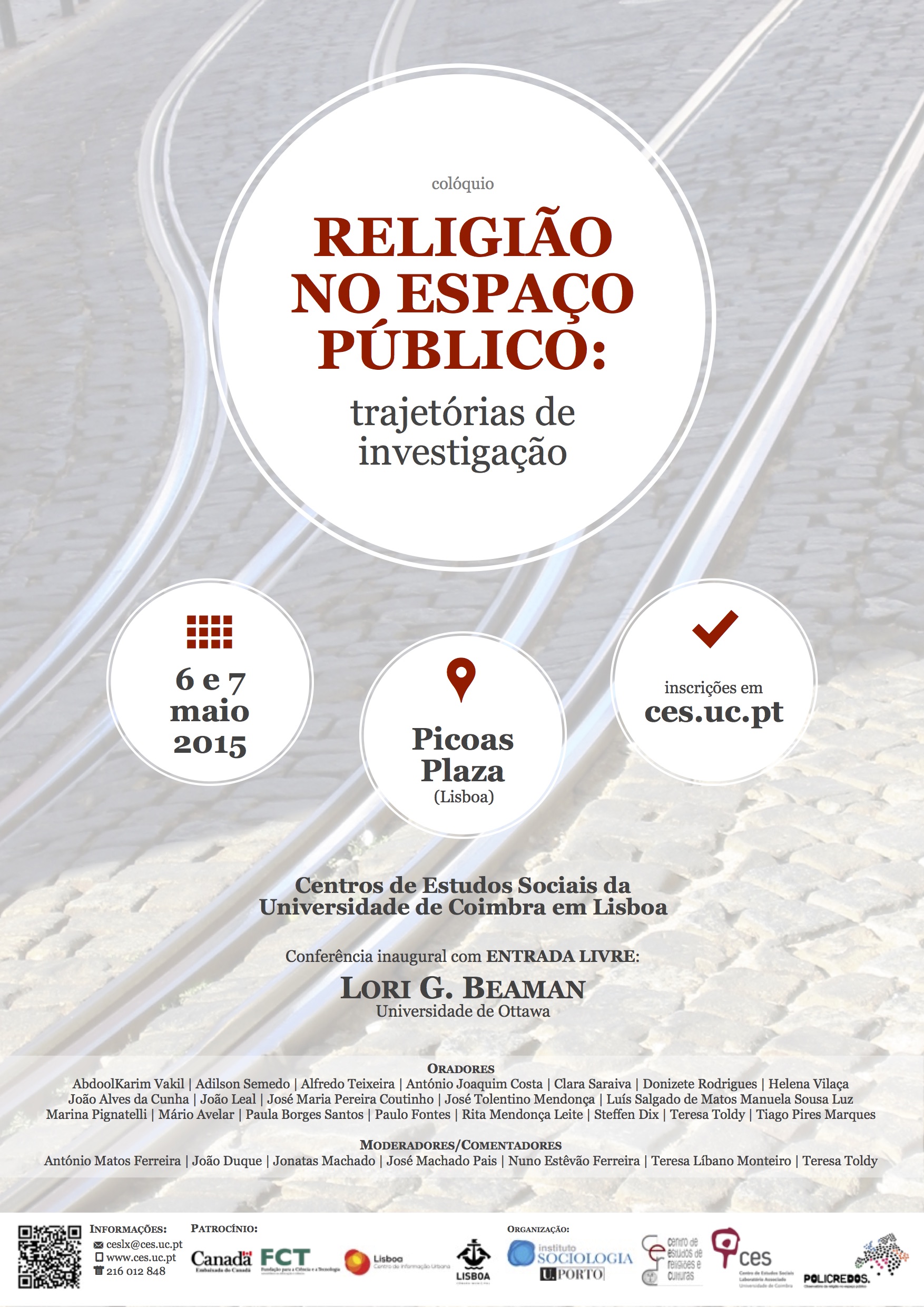Colóquio
Religião no espaço público: trajetórias de investigação
6 e 7 de maio de 2015
CES-Lisboa e CIUL-Centro de Informação Urbana de Lisboa (Picoas Plaza)
Enquadramento
As sociedades do Atlântico Norte conheceram amplas remodelações quanto aos modos de inscrição da religião na cena pública e quanto ao lugar das referências religiosas na construção das identidades. Depois dos discursos hegemónicos acerca do destino da religião, os diagnósticos tornaram-se cada vez mais paradoxais: entre a «saída» da religião e o seu «regresso»; entre a religião «invisível» e a «visível»; entre a «erosão» e a «recomposição» do campo religioso; entre o «endurecimento» comunitarista e a «fluidez» da religião dos indivíduos. Essas novas inscrições da religião no espaço público não podem ser dissociadas de transformações ocorridas no campo religioso e que resultam, em boa medida, do fim de uma relação histórica que identificava a nação com uma Igreja e determinava a sobreposição das identidades nacional e religiosa, da afirmação de novas possibilidades de autonomização e individualização, e dos efeitos da forte mobilidade, que é uma constante estrutural desde a segunda metade do século XX.
Portugal, país maioritariamente católico, ainda que não afetado pela onda de imigração ocorrida após a II Guerra Mundial, transformou-se num contexto de receção depois de 1974, com os recém-chegados das ex-colónias, um fenómeno reforçado pela entrada na União Europeia nos anos oitenta e pela vaga de imigração na década seguinte. Além da liberdade que surgiu na sequência do regime democrático, esses foram fatores que determinantes para diversificação religiosa, étnica e cultural da sociedade portuguesa. E hoje, no quadro desta nova tendência global, e em busca de reconhecimento no espaço pública, tanto o catolicismo, nas suas várias sensibilidades, como outras igrejas cristãs e outras religiões procuram novos modos de identificação e novas formas de comunicação/transmissão.
As trajetórias recentes dos Estudos da Religião tornaram evidentes os riscos que se correm quando o fenómeno religioso é reduzido a uma narrativa única. As religiões e a religião, enquanto objeto científico, exigem hoje um olhar multiscópico, que permita o cruzamento de diversas escalas e supere as tendências para o seu isolamento ou marginalização no campo dos saberes. Neste contexto, a presente iniciativa impulsionada por três unidades de investigação portuguesas tem a modesta ambição de contribuir para construção da comunidade científica dos Estudos da Religião em Portugal, promovendo, neste colóquio, um encontro de olhares sobre algumas das mais marcantes trajetórias de indagação e pesquisa sobre a religião no quadro das modernidades múltiplas.
Inscrições
As inscrições, mediante formulário online, decorrem até 29 de abril.
Preços: Conferência Lori G. Beaman: entrada livre. Inscrições para o colóquio: 10 euros
Comissão organizadora
Alfredo Teixeira (CERC - Universidade Católica Portuguesa)
Helena Vilaça (IS - Universidade do Porto)
Teresa Toldy (CES - Universidade de Coimbra | Universidade Fernando Pessoa)
Organização
Centro de Estudos Sociais (CES) da Universidade de Coimbra
Instituto de Sociologia (IS) da Universidade do Porto
Centro de Estudos de Religiões e Culturas (CERC) da Universidade Católica Portuguesa
Contactos
ceslx@ces.uc.pt / 216012848
Patrocínio
Apoio
.jpg)
.jpg)


